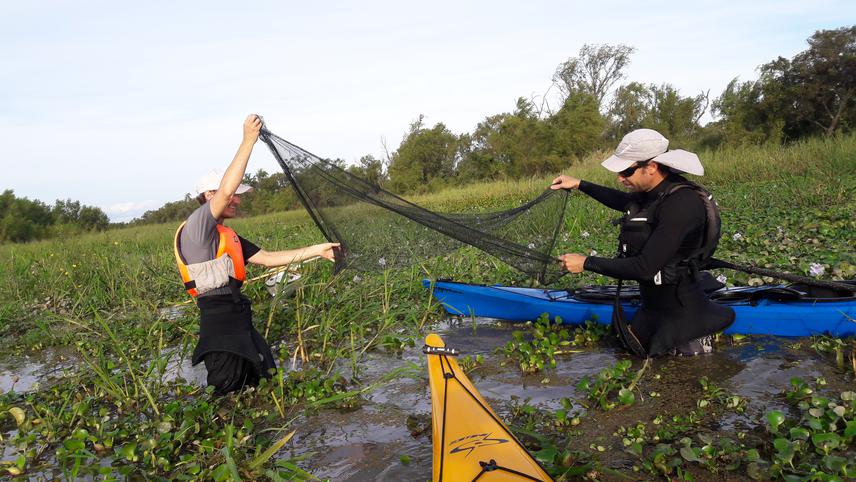Martin Blettler
Other projects
7 Feb 2017
Plastic Debris in Sediments of a Large South American River (Paraná River): Occurrence and Spatial Distribution
28 Sep 2018
Microplastics Ingestions by Fauna as a Serious Emerging Threat in Freshwater Systems
Microplastics (MPs) are a global environmental issue polluting terrestrial, aquatic and aerial environments.
It is well known that MPs can cause tissue damage, oxidative stress, changes in immune-related gene expression, neurotoxicity, growth retardation and behavioral abnormalities in animals and humans, those who ingest and breathe them.

MP sampling in a lake of the Paraná River floodplain. © Martin Blettler.
Yet, the scientific and public knowledge about airborne MPs is extremely sparse.
Because of that, herein we focus on the air (atmosphere) as a new vehicle for MP entrance to natural environments from unnatural ones (cities, air-open dumps, highways, etc.), and on the concrete measures to reduce it.
In this sense, the objectives of this proposal are: 1) to identify the main sources (cities, open air-dumps, highways) and pathways (transport, deposition) of air-plastic-pollution entering to the natural or semi-natural environment (Paraná River floodplain); and 2) to influence decision-makers to bring about changes in laws, policies and practices in order to reduce airborne MP pollution.
Thus, we expect to create synergies and coordinate actions with decision-makers to reduce air-plastic-pollution in the region, based on our own scientific results. The integration of scientific, non-profit organizations, government, business, and community is crucial to be successful in this mission.
Header: Kayaks for mobility in the Paraná River floodplain (zero carbon footprint and free of noise pollution). © Martin Blettler.